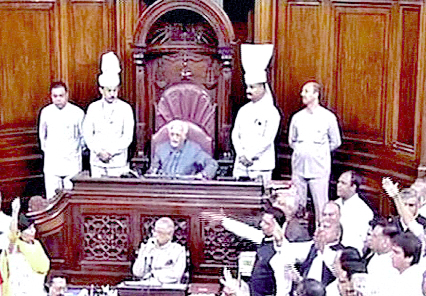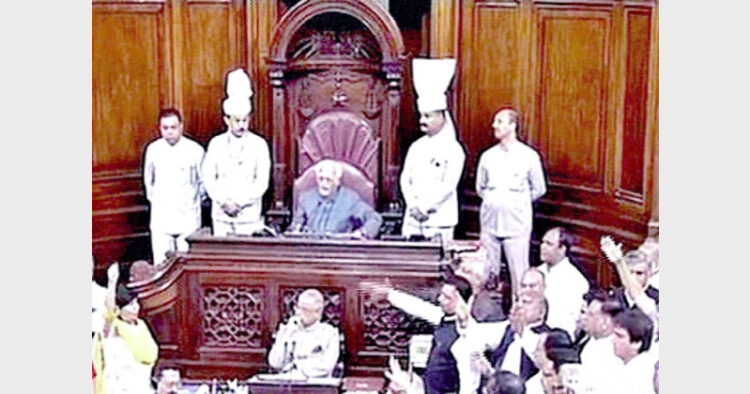
Another round of Rajya Sabha elections are through, and the tone and tenor of our national politics is suddenly transformed. A consensus building on GST is taking a shape, issue based support is voluntarily assured to the government by Chief Ministers like Mamta and Jayalalitha, cabinet gave a positive nod to sensitive issue like the cabinet nod on SBI-associate merger and long pending policy initiatives for the civil aviation sector. These changing dynamics clearly show why these Rajya Sabha elections were most discussed and explained in recent times. These elections, along with next round in July, can be a game changer for the national political calculus in three ways.
Frankly, ruling dispensation not having majority in Rajya Sabha is nothing new, as rarely the ruling party had a majority in the Upper House since 1990s. The other side of the story is, for almost the same period no political party could secure a majority in general elections, so the exercise of managing coalitions taking place in Lok Sabha would automatically spill over to Rajya Sabha. Thus, outside support of Communist Parties to the UPA I in the lower house would ensure safe passage of government agenda in the other house. Now the ruling party, commanding clear majority in Lok Sabha and with unambiguous agenda of governance, having no majority in Rajya Sabha has become a critical issue.
For the last two years, the decimated Congress in Lok Sabha, used Rajya Sabha numbers as a tool of obstructionist politics. It went to the extent of forcing the government to accept an amendment in the motion of thanks to the President’s address to the joint session of Parliament, which is a rarity in parliamentary politics. Though the recent election results are not going to change the number dramatically, it is certainly going to give a tactical edge for the NDA. In the changed situation, the gap between two major parties, BJP and the Congress has come down to 3, with 54 and 47 members respectively. More importantly, as a coalition, first time NDA has overcome the tally of UPA with 74 members, again an advantage of 3 members. With nominated members this tally is higher. This has reduced the Congresses ability to monopolise the agenda. The next round of elections in July will further isolate the Congress in Parliament.
Secondly, the non-BJP, non-Congress parties, though have a whopping 90 members in the Upper House, do not have a consolidated agenda as they have their state specific preferences. So regional leaders like Mulayam Singh, Mamta Bannerjee, Naveen Patnaik etc are unlikely take obstructionist stand on each and every issue. In fact, there may be realignment in favour NDA where leaders like Jayalalitha will support on most of the issues if the specific state concerns are addressed. As the government is willing to transmit more economic power to the states to carry out development agenda, these regional parties would be glad to cooperate with the government on national issues. This may introduce us to the new phase of cooperative federalism.
Lastly but most importantly, this government has assumed power riding on high expectations after the period of policy paralysis. There are many positive indicators on the front of fiscal consolidation and consistent growth rate. The time is to deliver fruits of those macro indicators on the ground. This government will be in better position to carry forward the agenda of inclusive growth and transparent governance with comfortable position in Rajya Sabha. As the oil prices are dipped and international bargaining power of Bharat is high, this is a right time to pick up the pace of growth.
Though ‘federalism’ constitutes the basic structure of Constitution of Bharat, as cautioned by Dr Ambedkar, it cannot be used to create hurdles of ‘rigidity’ and ‘legalism’. Unfortunately, the nature of politics is such that even the core spirit of Constitutional provisions get diluted and diverged by numbers. Therefore, the recently held Rajya Sabha elections can bring a new dawn of policy initiatives for prosperous, powerful and progressive Bharat.
@PrafullaKetkar













Comments